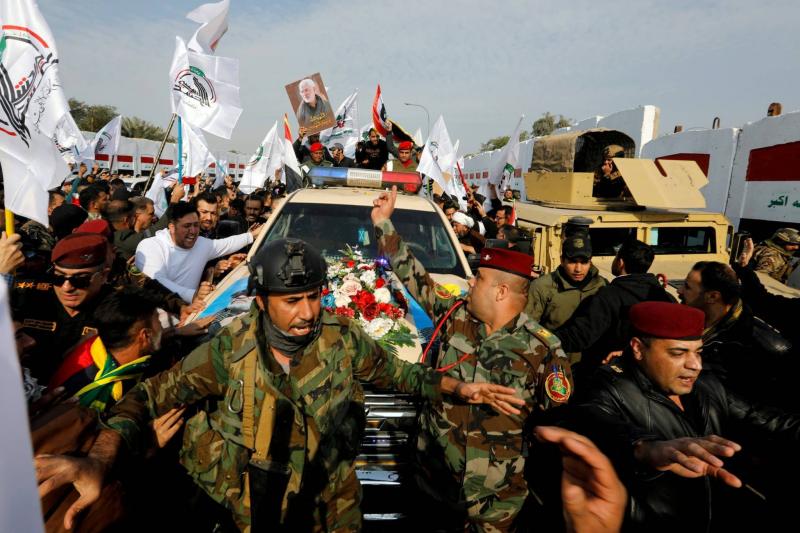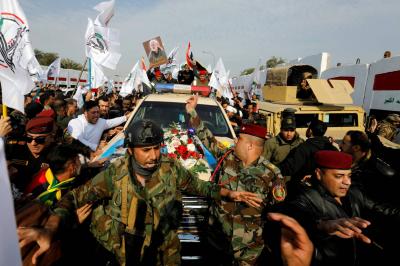On Sunday, the United States announced that it had carried out another round of airstrikes against Iran-backed armed factions in Iraq and Syria, this time in response to drone attacks launched by those factions targeting Americans and U.S. facilities in Iraq. The U.S. military stated in a release that it targeted weapons operation and storage facilities at two sites in Syria and one site in Iraq. It did not disclose whether it believed the strikes resulted in casualties.
Iran-allied Iraqi factions stated in a release that four members of the Sayyid al-Shuhada battalion were killed in the attack on the Syrian-Iraqi border and vowed to retaliate. These strikes were conducted under the direction of President Joe Biden, marking the second time he has ordered retaliatory strikes against Iran-backed factions since taking office five months ago. The last time Biden authorized limited strikes in Syria was in February, in response to rocket attacks in Iraq.
The U.S. Department of Defense (Pentagon) stated, "This evening's strikes demonstrate that President Biden is clear that he will take action to protect Americans." The strikes came even as the Biden administration sought to revive the 2015 nuclear deal with Iran. Biden's critics argue that Iran cannot be trusted and point to the drone attacks as further evidence that Iran and its proxies cannot accept a U.S. military presence in Iraq or Syria.
Biden and the White House refrained from commenting on the strikes on Sunday. However, Biden is scheduled to meet with Israeli President Reuven Rivlin, who is nearing the end of his presidency, at the White House on Monday for extensive discussions that include U.S. efforts to return to the Iranian nuclear deal and the formation of a new government in Israel. These efforts have raised serious concerns in Israel, Iran's arch-enemy.
U.S. officials believe Iran is behind the escalation of sophisticated drone attacks and repeated rocket launches against U.S. personnel and facilities in Iraq, where the U.S. military is assisting Baghdad in combating remnants of the Islamic State. Two U.S. officials, speaking to Reuters on condition of anonymity, stated that Iran-backed factions have launched no less than five drone attacks against facilities used by U.S. military personnel and coalition forces in Iraq since April.
The Pentagon indicated that the targeted facilities were being used by Iran-backed armed factions, including Kata'ib Hezbollah and the Sayyid al-Shuhada battalion. A defense official noted that one of the targeted facilities was used to launch and recover drones. Officials stated that the U.S. military conducted the strikes using F-15 and F-16 aircraft, and indicated that the pilots who carried out the strikes returned safely. One official told Reuters, "We estimate that every strike hit the intended targets."
The Iraqi government is struggling to curb armed factions ideologically allied with Iran, which are accused of launching rockets at U.S. forces and being involved in the killings of peaceful activists demanding democracy. Earlier this month, Iraq released Qassem Musleh, a leader of Iran-aligned Popular Mobilization Forces, due to insufficient evidence against him after his arrest in May on terrorism-related charges.




